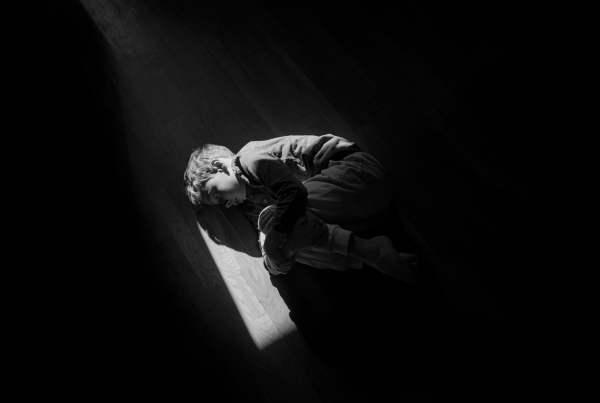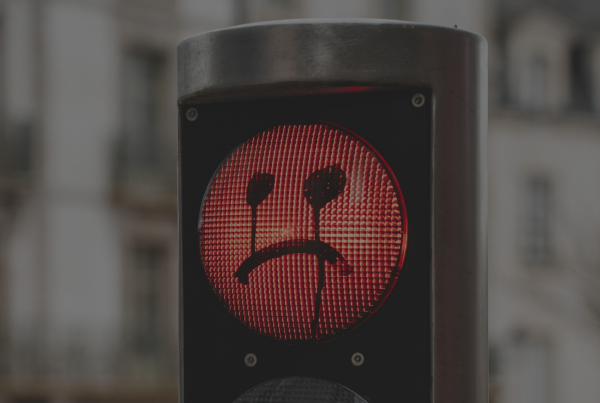Authors: Dr. Abbie Maroño
Published: August 25, 2025
You pride yourself on being self-sufficient. You’ve built a life where you don’t need anyone, or anything from anyone. When challenges arise, you tackle them alone, without asking for help or leaning on others. In fact, you might even feel like asking for help would be a weakness—a failure to manage what you should be able to handle.
Society tends to glorify this mindset. We hear about “self-made” successes, celebrate independence as a virtue, and equate vulnerability with fragility. But what if this constant self-reliance—this hyper-independence—does more harm than good? What if the very thing you see as your strength is quietly isolating you, burning you out, and keeping you from deeper connections?
Hyper-independence isn’t the same as healthy autonomy. It goes beyond taking responsibility for yourself; it’s an excessive need to handle everything on your own, often to the detriment of your well-being. And while it may feel like a badge of honor, science tells a different story.
What Drives Hyper-Independence?
Hyper-independence doesn’t just appear out of nowhere. It’s often deeply rooted in past experiences—particularly trauma or emotional neglect. If relying on someone in the past led to rejection, betrayal, or abandonment, your brain may have learned to avoid dependency at all costs. This is part of your survival instinct, driven by the amygdala, the brain’s fear center. The amygdala sends a clear and powerful message: “Don’t trust anyone but yourself.” Over time, this protective mechanism becomes a default response, shaping how you navigate relationships and vulnerability.
What’s more, if you grew up with caregivers who were emotionally unavailable or inconsistent, the foundation for connection and trust may have been shaky from the start. These formative experiences can lead to the development of an avoidant attachment style—a relational blueprint where intimacy and reliance on others feel unsafe or unwise. For someone with an avoidant attachment style, dependency may not just seem difficult; it can feel inherently dangerous. As a result, hyper-independence becomes a shield, protecting against the emotional pain of disappointment, rejection, or unmet needs.
But it’s not just personal experiences. Our culture often reinforces hyper-independence, especially in Western societies. We celebrate the idea of being “self-made” and see asking for help as a sign of weakness. These societal messages make hyper-independence seem like an achievement rather than the defense mechanism it often is.
The Consequences of Hyper-Independence
At first glance, hyper-independence might look like strength. After all, you’re capable, resourceful, and reliable. The irony, of course, is that humans are inherently social beings. While hyper-independence may feel protective, it often isolates us from the connections and support systems we need to truly thrive.
One of the most significant consequences of hyper-independence is burnout. Burnout is not just about being tired—it’s a state of emotional, mental, and physical exhaustion caused by prolonged and unrelenting stress. For someone who operates in hyper-independence, burnout often creeps in because they refuse to ask for help, delegate tasks, or take moments of rest. Instead, the weight of managing everything alone becomes overwhelming.
Burnout can feel like emotional numbness, detachment from others, and a loss of motivation or accomplishment. You might find yourself cynical, overly self-critical, or constantly feeling like nothing you do is ever enough. Over time, burnout from hyper-independence can bleed into every aspect of life, leading to anxiety, depression, and even physical health problems. It’s not uncommon for people to experience sleep disturbances, chronic fatigue, or heightened stress levels that impact their ability to concentrate or make decisions. The issue with burnout in hyper-independence is that it’s a vicious cycle. The more burned out you feel, the harder it is to ask for help, because admitting you need support might feel like failure. Yet, without support, the burnout only deepens, leaving you emotionally and physically drained.
Your relationships may also suffer. Trust and vulnerability are the foundations of healthy connections, but hyper-independence keeps people at arm’s length. Over time, this can create loneliness and a sense of emotional disconnection. Even when others want to help, your walls may make it hard for them to reach you.
And let’s not forget the physical toll. Chronic stress from “doing it all” can impact your immune system, increase blood pressure, and leave you more susceptible to fatigue and illness. What feels like strength might actually be harming your health.
Self-Reflection and Change
If you’re wondering whether this applies to you, hyper-independence often shows up as an inability to ask for help, a discomfort with vulnerability, or a belief that you must handle everything alone. You might struggle to delegate, avoid leaning on others even in times of need, and find yourself pushing people away when they try to offer support. Sound familiar? If so, don’t worry, it doesn’t have to be a permanent state. It’s a learned behavior, and like all behaviors, it can be unlearned.
Breaking Free
The first step to change is understanding the roots of maladaptive coping mechanisms. Take a moment to reflect: When did you first start feeling like you had to handle everything on your own? Was it during childhood, when asking for help wasn’t met with support? Or maybe as an adult, when trust was broken in a significant way? Identifying these moments can help you understand why you’ve built such strong walls.
Once you’ve identified the cause, the next step is to challenge it—gently. Start small. Ask for help with something minor, like advice or a simple task. Notice how it feels to let someone else step in. Often, you’ll find that people are willing to help and that allowing them to do so strengthens your connection rather than weakening your independence.
It’s also important to reframe the way you think about dependency. Needing support isn’t a weakness. It’s human. In fact, studies show that healthy relationships, built on mutual support, are essential for both mental and physical health. Allowing yourself to lean on others isn’t just good for you; it also gives others the opportunity to feel needed and connected.
Hyper-independence often feels like a shield, a way to protect yourself from disappointment, hurt, or rejection. But over time, that shield can become a barrier, keeping you from the very things that make life fulfilling, like connection, trust, and shared experiences. True strength isn’t about doing everything alone. It’s about knowing when to lean on others, when to let someone in, and when to share the load.
So, the next time you catch yourself thinking, “I can handle this alone,” pause. Ask yourself: What would happen if I let someone help me? You might be surprised by the strength you find in connection.
References
Barone, L., & Carone, N. (2021). Childhood abuse and neglect experiences, Hostile-Helpless attachment, and reflective functioning in mentally ill filicidal mothers. Attachment & Human Development, 23(6), 771-794.
Bay, F., & Novinrouz, E. (2022). The predictive effect of early maladaptive schemas and hardiness on burnout of elementary school teachers. Iranian Evolutionary Educational Psychology Journal, 4(1), 73-83.
Congleton, C. (2023). Getting Over Ourselves: Moving Beyond a Culture of Burnout, Loneliness, and Narcissism. John Wiley & Sons.
Grange Isaacson, T. (2020). Metaphors of agony: Culture-bound syndromes of hyper-independence. Psychoanalysis, Self and Context, 15(4), 375-383.
Janovsky, T., Rock, A. J., Thorsteinsson, E. B., Clark, G. I., & Murray, C. V. (2020). The relationship between early maladaptive schemas and interpersonal problems: A meta‐analytic review. Clinical Psychology & Psychotherapy, 27(3), 408-447.
Lau, B. (2021). Independence to interdependence: changing the narrative of rehabilitation.
Lenkens, M., Rodenburg, G., Schenk, L., Nagelhout, G. E., Van Lenthe, F. J., Engbersen, G., … & Van De Mheen, D. (2020). “I need to do this on my own” resilience and self-reliance in urban at-risk youths. Deviant Behavior, 41(10), 1330-1345.
Petersen, A. H. (2021). Can’t even: How millennials became the burnout generation. Mariner Books.
Stauffer, K. A. (2020). Emotional Neglect and the Adult in Therapy: Lifelong Consequences to a Lack of Early Attunement. WW Norton & Company.





